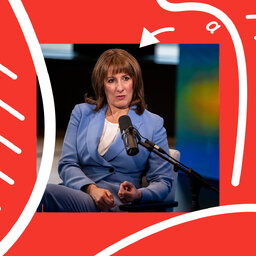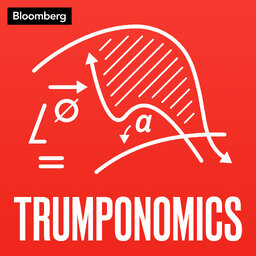Clean
Farage 'Trumpifies' Tories, India Surprise and Europe Just Got a China ‘Wake Up Call’
Europe cannot rely on America for its long-term security, says Robin Niblett, distinguished fellow and former director of Chatham House. On this episode of Voternomics, Niblettt—who conceives of a multi-decade “structural conflict” between China and the US—says Europe has experienced a “wake up call.”
Plus, Stephanie, Allegra and Adrian discuss Brexit architect Nigel Farage's decision to run in the UK election and reporter Swati Gupta joins to break down the India election surprise.
In 1 playlist(s)
Trumponomics
Tariffs, crypto, deregulation, tax cuts, protectionism, are just some of the things back on the tabl…Social links
Follow podcast
Recent clips

Countdown to a Global Energy Shock
30:04

Exclusive: Rachel Reeves on Iran Shock, US Trade and Inflation Risks
25:18

Introducing: Bloomberg This Weekend
01:08
 Trumponomics
Trumponomics